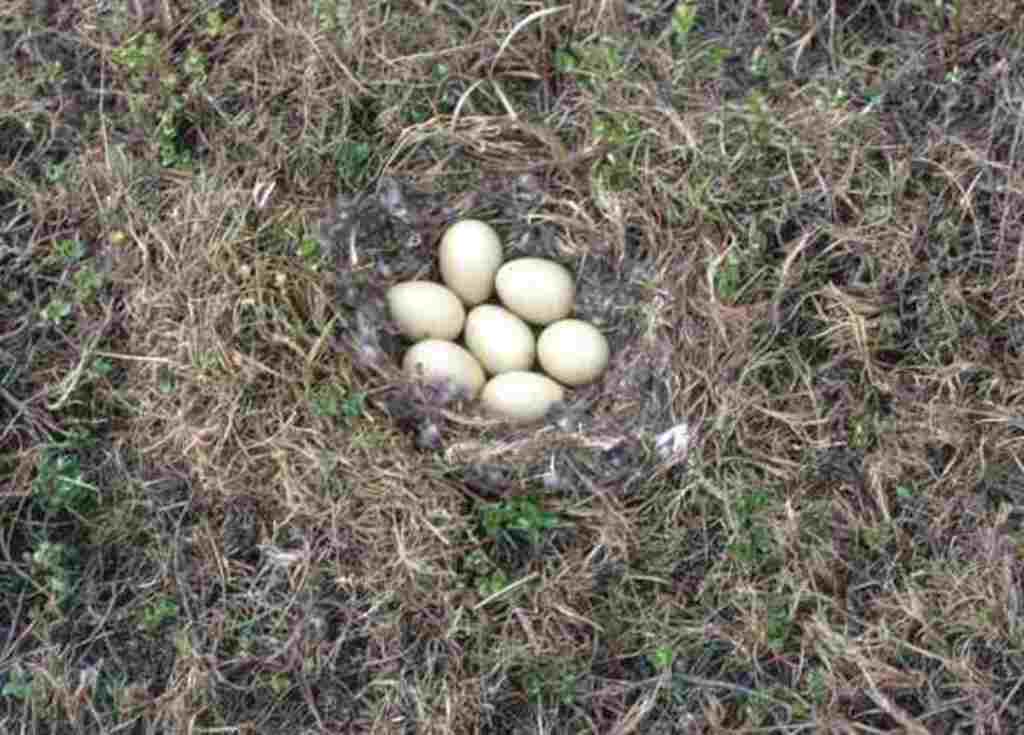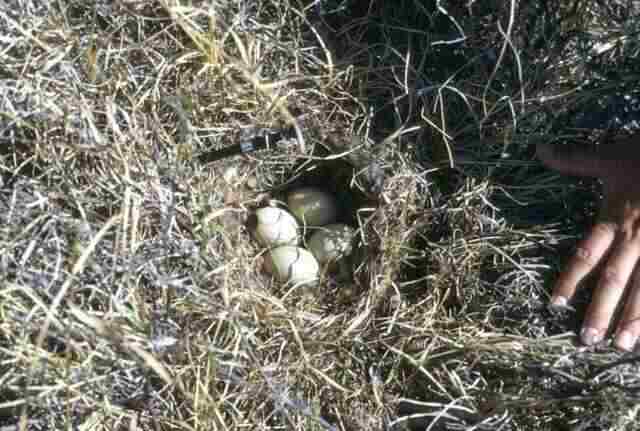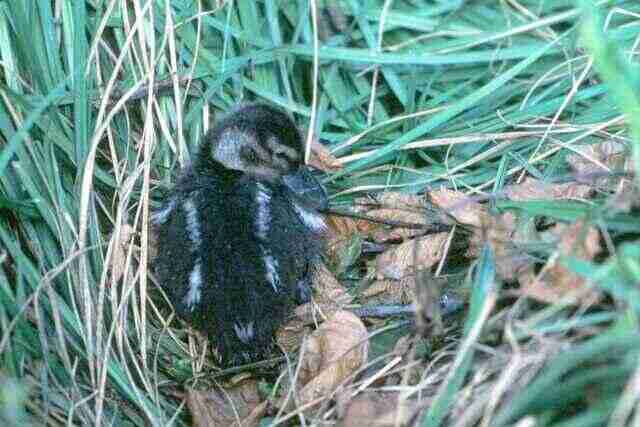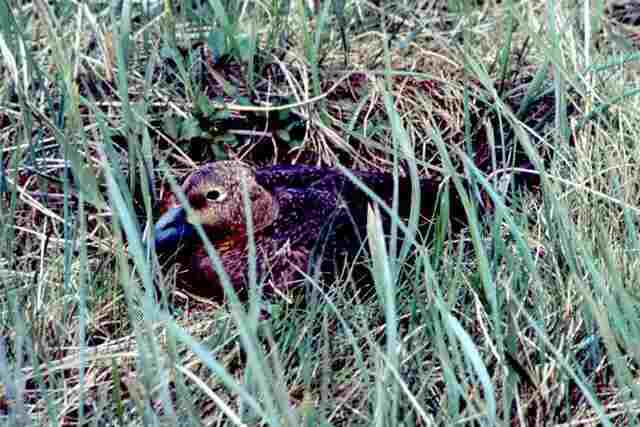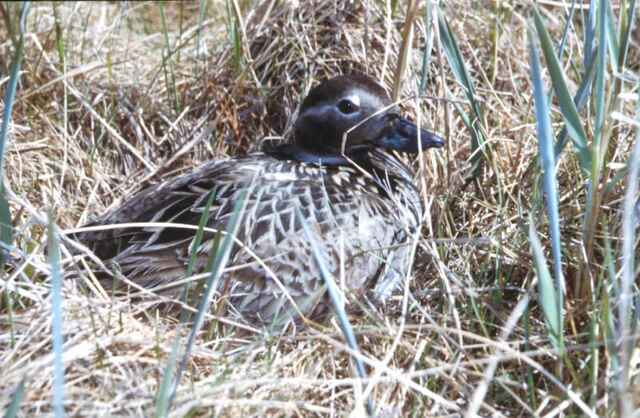Quack, quack! Are you ready to dive into the egg-citing world of ducks? If you’re a proud owner of feathered friends or just curious about their egg-laying habits, then you’re in the right place.
So, how long do ducks sit on eggs? The short answer is around 28 days. But don’t waddle away just yet, because there’s more to this story than just a number.
Get ready to hatch some knowledge and discover the fascinating journey of ducklings from eggs to adorable fluff balls.
Table of Contents
- 1 The Importance of Understanding the Incubation Period for Duck Eggs
- 2 The Process of Duck Egg Incubation
- 3 The Incubation Period for Duck Eggs
- 4 The Role of Ducks in Incubating Eggs
- 5 Factors that Affect Egg Hatching Success
- 6 Rarely Known Details About Duck Egg Incubation
- 7 Conclusion
- 8 FAQs: How Long Do Ducks Sit on Eggs?
- 8.1 How long does it take for a duck to lay eggs?
- 8.2 How long do ducks sit on their eggs?
- 8.3 How often do ducks turn their eggs?
- 8.4 What temperature do duck eggs need to incubate?
- 8.5 Can you candle duck eggs to see if they’re fertile?
- 8.6 Do ducks sit on their eggs all night?
- 8.7 How long can duck eggs survive without warmth?
- 8.8 What should you do if a duck abandons her eggs?
- 8.9 How long does it take for ducklings to hatch?
- 8.10 Can you eat duck eggs that have been incubated?
- 9 Author
The Importance of Understanding the Incubation Period for Duck Eggs
Duck egg incubation is an important process which is critical to the survival of duck populations. Understanding how long ducks sit on eggs and the factors that affect incubation time can help ensure high hatching success rates.
The length of time a duck sits on its eggs, or incubates them, depends on various factors including temperature, humidity, and other environmental conditions.
Knowing how long ducks sit on eggs can also be helpful in terms of planning for breeding.
It allows breeders and farmers to anticipate when they will have new arrivals, have an idea of their population numbers, and to make necessary preparations for caring for the hatchlings.
The Process of Duck Egg Incubation
The process of duck egg incubation begins with the laying of the eggs by female ducks. Once laid, male and female ducks take turns sitting on the eggs until they hatch, which generally occurs after 28 days. During this time, ducks will not leave their nests except in rare circumstances, such as to get food or water.
The temperature and humidity levels must remain consistent throughout this period in order to ensure healthy embryonic development and successful hatching.
Once hatched, ducklings are completely dependent upon their mothers for warmth and protection during their first few weeks until they are old enough to fend for themselves.
Understanding how long ducks sit on eggs is essential for ensuring successful hatching rates, as well as anticipating new arrivals in a duck population.
Proper care during incubation can greatly improve success rates, while inadequate care may result in lower or no hatching at all.
The Incubation Period for Duck Eggs
Length of incubation period for duck eggs
The incubation period for duck eggs is typically around 28 days, although this can vary depending on several factors.
The length of the incubation period can be affected by the temperature and humidity levels in the nest, as well as other environmental factors such as predation or disturbance.
During the incubation period, it is important to maintain consistent temperature and humidity levels to ensure successful hatching.
Factors that can affect the length of incubation period
There are several factors that can affect the length of incubation period for duck eggs. One important factor is the age and health of the female duck laying the eggs.
Older or unhealthy females may have longer or less successful incubation periods than younger, healthier ducks.
Other factors that can affect egg development include fluctuations in temperature or humidity levels, poor nutrition prior to laying, and genetic traits that impact egg development.
Comparison to other bird species’ incubation periods
Duck egg incubation periods are similar to those of other waterfowl species such as geese and swans. However, they differ from those of most songbirds which have much shorter incubation periods, ranging from 10 to 14 days.
Interestingly, some species like emperor penguins have much longer incubation periods, lasting up to 65 days! This variation in lengths of egg incubation periods reflects adaptations made by birds to their specific environments and survival strategies.
Understanding how long ducks sit on eggs is crucial in ensuring a successful hatch rate. The length of the incubation period depends on several factors, including environmental conditions and genetics.
Comparing it with other bird species gives insight into how different species adapt according to their ecological niche.
The Role of Ducks in Incubating Eggs
Explanation of How Ducks Sit on Their Eggs
Once a duck has laid her eggs, she will begin to sit on them in a process called incubation. During this time, the duck’s body will maintain a constant temperature to keep the eggs warm and healthy.
As such, the mother duck must sit on her eggs for extended periods, often for 23-26 hours per day. Ducks also have a specific way they sit on their eggs.
They use their bodies to create a nest or bowl shape around the eggs, and use their feathered underside to ensure that the eggs are kept warm and protected.
The mother duck will also turn or adjust them periodically to maintain an even temperature throughout each egg.
Importance of Proper Nest Building and Egg Placement
Creating an appropriate nest structure and placing the eggs correctly is critical for successful egg incubation. A well-built nest can protect against predators as well as maintain proper moisture levels in the eggs as they hatch.
Ducks tend to choose concealed locations near water sources when building nests, but this isn’t always practical in urban areas or places without nearby water sources.
If ducks are nesting in these types of areas, it’s important that people do not disturb them so that they can continue their natural behaviors without interruption.
In terms of egg placement, it’s essential that ducks place their eggs with enough space between each one so that they can be turned and rotated easily during incubation.
If too many are stacked together, there may be insufficient airflow between them, which could negatively impact hatching success rates.
Contrary to some bird species where only females are responsible for incubating their own offspring, male ducks play just as big a role during incubation periods by helping females care for their young.
They take turns sitting on the eggs so that females can feed and rest, sometimes even taking over incubation duties entirely if necessary. It’s important to note that not all ducks share responsibilities equally.
For example, in some cases, male ducks may only sit on the eggs for a few minutes at a time while female ducks will spend hours incubating them. Ultimately, it depends on the specific duck species and individual duck behavior.
Factors that Affect Egg Hatching Success
Temperature and humidity requirements during incubation
Temperature and humidity are the most critical factors affecting egg hatching success. The ideal temperature for duck eggs is between 99.5 °F to 100 °F, and the humidity levels should be maintained at around 55% to 60%.
Any deviation from these levels could result in poor hatch rates, or even worse, a complete failure to hatch.
It is necessary to have proper equipment such as an incubator that will maintain the correct temperature and humidity conditions throughout the incubation period.
Failure to have this equipment can lead to suboptimal conditions for developing embryos, which will result in poor hatching success.
Predators and environmental factors that can harm eggs
Predators such as rats, snakes, raccoons, and other animals can harm duck eggs. It is crucial to have a secure nesting area that protects ducks from these predators.
Environmental factors such as floods or droughts can also affect egg hatching success.
Floods can cause eggs to drown if they are submerged in water, while droughts will cause an increase in temperature, leading to poor hatch rates.
Ducks need a secure nesting area free from predators with favorable weather conditions for optimum egg hatching success.
Importance of proper care during incubation
Proper care during incubation is essential for successful hatching of duck eggs. The eggs should be turned regularly throughout the day (at least three times per day) up until day 25 when it’s time for them just sit still waiting until they hatch.
Duck eggs require careful handling with minimum disturbance throughout the incubation period because any shaking of the egg could kill an embryo inside it, resulting in decreased hatch rates or even failure of all embryos at once.
Factors such as temperature, humidity, predators, and environmental factors can affect egg hatching success. Proper care of duck eggs through the incubation period is essential for optimum hatching rates.
Ducks need a secure nesting area with favorable weather conditions free from predators. By ensuring these factors are taken into account, you can increase your chances of successful hatching rates, leading to healthy ducklings.
Rarely Known Details About Duck Egg Incubation
How to determine if an egg is fertilized or not before hatching
One of the rarely known details about duck egg incubation is how to determine if an egg is fertilized or not before hatching. This can be done by shining a bright light through the egg while it’s still in the incubator.
The light will illuminate the yolk and show any veins that have developed in a fertilized egg. If there are no veins visible, then the egg is not fertilized and won’t hatch.
It’s important to note that this process should be done carefully and quickly, as exposing the eggs to too much light or handling them too much can harm their development.
It’s also best to wait until at least seven days into incubation before attempting this process, as it may be difficult to see any signs of fertilization before then.
The role that sound plays in duckling development while still in the egg
Another rarely known detail about duck egg incubation is the role that sound plays in duckling development while still in the egg. Studies have shown that ducklings are able to hear and respond to sounds even while still inside their eggs.
In fact, they’re able to recognize their mother’s voice and respond differently depending on whether she’s nearby or far away.
This ability may help them develop a bond with their mother even before hatching, as well as prepare them for life outside the shell by allowing them to start learning about their environment before they even hatch.
How ducks use their beaks to communicate with their developing offspring
Another fascinating aspect of duck egg incubation is how ducks use their beaks to communicate with their developing offspring. It’s been observed that ducks will gently tap on their eggs with their bills in a specific pattern, which serves as a form of communication with their offspring.
Researchers believe that this tapping may help stimulate the developing ducklings’ growth and development, as well as prepare them for life outside the egg.
It’s also been suggested that the tapping may help synchronize hatching among siblings, allowing them to emerge from their shells at roughly the same time and increasing their chances of survival in the wild.
Overall, these rarely known details about duck egg incubation provide valuable insight into the fascinating world of avian reproduction, and demonstrate just how complex and intricate this process can be.
Conclusion
Understanding Duck Egg Incubation
Duck egg incubation is a fascinating process that is critical for the survival of ducklings. It’s important to know how long ducks sit on their eggs to ensure proper care and hatching success.
The incubation period of duck eggs can vary depending on several factors, including temperature, humidity, and egg fertility. Generally, the incubation period for duck eggs ranges from 25 to 28 days.
Factors Affecting Egg Hatching Success
Several factors can affect the successful hatching of a duck egg. Temperature and humidity are two critical factors that need to be carefully monitored during incubation.
If these conditions are not ideal, it can lead to poor hatching success or even death of developing embryos. Other environmental factors such as predators or extreme weather conditions can also harm the eggs.
It’s essential to provide proper care during the incubation period, including regular turning and monitoring for signs of damage or infection on the eggs’ surface. Providing a safe nest site with adequate protection from predators is also crucial.
The Role of Ducks in Incubating Eggs
Ducks play an active role in incubating their eggs, with both males and females sharing the responsibility. They carefully construct nests in suitable locations with soft materials such as grasses or feathers for insulation.
The female ducks are responsible for laying the eggs while male ducks keep watch over their territory and protect them from predators while allowing females access to food and water sources nearby.
Understanding how long ducks sit on their eggs is crucial in ensuring optimal hatching success rates for these delicate creatures.
Proper care during incubation may make all the difference between life and death for developing embryos.
With careful attention paid towards temperature control, humidity levels, predator protection measures around nesting sites along with male/female responsibilities – we can ensure successful hatching for duck eggs.
FAQs: How Long Do Ducks Sit on Eggs?
How long does it take for a duck to lay eggs?
A female duck usually takes 24 to 26 hours to lay one egg. After she lays the last egg of her clutch, she begins to incubate them.
How long do ducks sit on their eggs?
Ducks typically sit on their eggs for about 28 days. During this time, they hardly leave the nest and only get up for a few minutes to eat, drink, and stretch their legs.
How often do ducks turn their eggs?
Ducks turn their eggs about 6 to 8 times per day during incubation. This helps ensure that the developing embryos receive adequate heat and nutrients.
What temperature do duck eggs need to incubate?
Duck eggs need to be incubated at a temperature of 99 to 100 degrees Fahrenheit with a humidity level of 55 to 60 percent.
Can you candle duck eggs to see if they’re fertile?
Yes, you can candle duck eggs to see if they’re fertile. Candling is a process where a bright light is held against the egg to see the development of the embryo inside.
Do ducks sit on their eggs all night?
Yes, ducks sit on their eggs all night long during the incubation period. This is to ensure that the eggs are kept at a consistent temperature.
How long can duck eggs survive without warmth?
Duck eggs can survive for about 7 to 10 days without warmth, but after that, the embryos may die.
What should you do if a duck abandons her eggs?
If a duck abandons her eggs, you can try to save them by incubating them yourself or finding another broody duck to adopt them.
How long does it take for ducklings to hatch?
It takes about 28 days for ducklings to hatch from their eggs. Once they hatch, the mother duck leads them to water to swim and find food.
Can you eat duck eggs that have been incubated?
Yes, you can eat duck eggs that have been incubated, but they will have a slightly different texture and flavor than fresh eggs. It’s best to use them for cooking rather than eating them raw.

